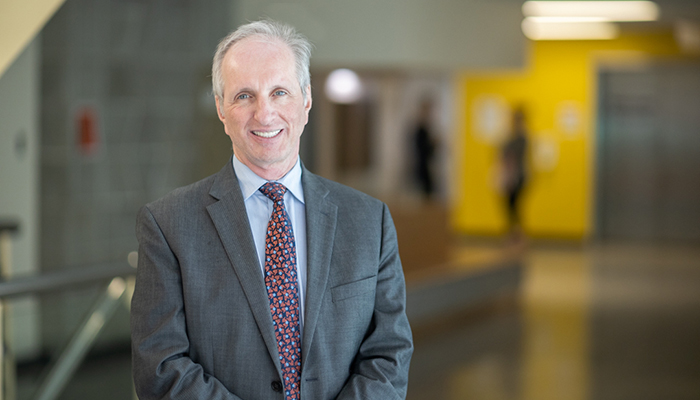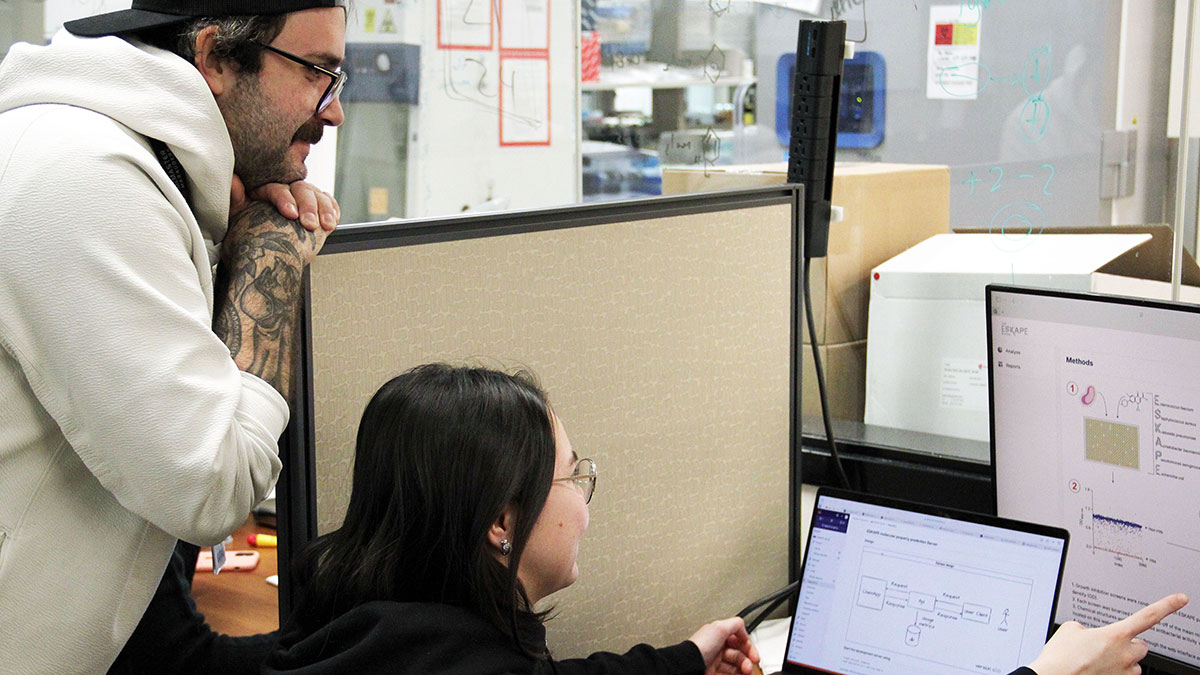‘It’s not your fault’: What a renowned diabetes researcher wishes more people knew

One in 10 Canadians lives with diabetes and according to Diabetes Canada, that figure is anticipated to grow over the next 10 years. It’s a life-altering and potentially life-threatening diagnosis, but one that can be prevented or delayed.
That’s why Hertzel Gerstein, endocrinologist and professor in the Department of Medicine at McMaster University, has dedicated his career to understanding the disease and potential treatments. Over the past 30 years, Gerstein has designed and led large, international clinical trials of therapies to reduce, delay and prevent diabetes and its consequences.
We spoke with Gerstein about diabetes, his approach to teaching, and why he says the stigma around the disease is a “big problem.”
What is diabetes and what are the different types?
Diabetes is diagnosed in an individual whose blood sugar is above a certain level. But what that means physiologically is that the mechanisms that keep the sugar level normal are beginning to fail. Sugar is a very important fuel that the body uses; it’s the currency of energy that makes your brain and muscles work.
There are three major types of diabetes. Type 1 diabetes is an autoimmune disease, where someone’s immune system attacks and destroys the cells in the pancreas that make insulin. Type 2 diabetes – which is the most common – occurs when someone can’t properly use the insulin made by their bodies, or their bodies aren’t able to produce enough insulin. Gestational diabetes occurs during pregnancy and usually resolves after delivery.
Prediabetes is when someone’s hemoglobin A1C – how we measure glucose levels in the blood – is between six and 6.5. Personally, I don’t like the term prediabetes because within it is a meta-message that you’re inevitably going to get diabetes, but many people stay in the so-called prediabetic range for years without progressing to diabetes.
Why is diabetes dangerous and potentially life-threatening?
If your blood sugar rises above the threshold that we call diabetes, you are at risk for a host of serious future health problems. Therefore, in addition to feeling unwell, tired or dehydrated, if you are not treated, you’re at risk for eye disease that could cause blindness; kidney disease sufficient to cause dialysis and kidney failure if not treated; ulcerations on your feet; bad nerve damage and pain, heart attacks, strokes, early deaths from any cause, cancer, dementia, and other health consequences. So, there are a host of many, many diseases that are promoted and occur earlier, or more frequently, in people with diabetes compared to people without diabetes, if you are not treated.
What is a misconception about diabetes that you’d like to address?
One of the biggest ones, which is a real big problem, is that there is tremendous stigma about diabetes and I think the most important message to get to everybody in my view is that if you have diabetes, you did not cause your disease. People do not ’eat themselves into diabetes’, in the same way that they don’t eat themselves into other diseases that are associated with overweight, such as breast cancer – and nobody would ever blame someone for developing breast cancer.
Therefore, people do not cause their own diabetes, regardless of the type of diabetes. Type 1 diabetes occurs because your body’s immune system attacks your pancreas, and type 2 diabetes and gestational diabetes occur because of other reasons. But regardless of type, diabetes develops because of the way that your body is put together, including your genetics, your epigenetics, your personal exposures, your microbiome, and the way that it interacts with the environment around you.
These factors also influence your weight and the way that your body distributes the fat component of that weight – something that we have no control of. If your body puts fat into your abdomen and liver, your risk for type 2 diabetes and other illnesses is much higher than if it sequesters it in your hips.
What would you say to a newly diagnosed patient?
It’s not your fault that you developed diabetes. But it is your responsibility to work with your health care team to optimally treat it and reduce the likelihood of future health problems.
As an educator, how does that compassionate approach trickle down to your students?
The best way is for learners and colleagues to hear me say it, and specifically to hear me say it to patients. And there have been many instances when, in response to me saying, “This is not your fault; you did not cause this disease,” the patient tears up, and expresses how their friends, family, and even other physicians have told them the exact opposite, accusing them of having brought their diabetes upon themselves.
What strikes you most about your research?
We – the community of diabetes researchers – have proven that when academic medicine works across sectors collaboratively – different specialties in medicine, governments, charities, device companies, and pharma companies — we can identify effective, life-saving therapies for people with diabetes and can improve and change their lives. And that, to me, is the biggest message that I’ve gotten in my own career. Working together, I know we can change the world – I’ve seen it. But nobody, and no sector can do it alone.
ResearchRelated News
News Listing

Fly on the Wall: Advancing health-care professions education through research
Feature, Fly on the wall, Research
2 days ago

January 27, 2025

Brighter World ➚
Analysis: Ontario’s high-stakes bet on iGaming: Province profiting from online betting but at what cost to problem gambling?
Research
January 20, 2025
